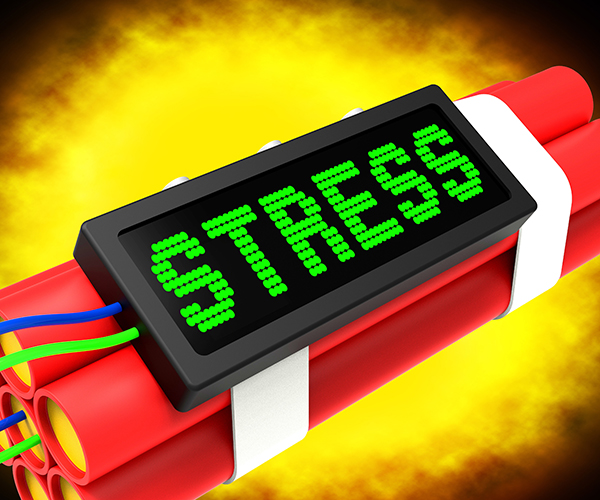By Harvey Deutschendorf
As the pace of change and automation in our workplaces continue to speed up, it is inevitable that the pressures and stressors will continue to rise. Most people feel this and are aware of this happening all around them in their organizations. According to a new Korn Ferry survey, nearly two-thirds of professionals say their stress levels at work are higher than they were five years ago.[Survey]
The culprits in causing this increased pressure at work were found to be changes in technology, workloads and interpersonal conflict. While some of the stressors will not change, but accelerate; such as technological change, areas such as interpersonal conflict can be managed in a more effective way. People who are high in emotional intelligence are better able to manage their emotions and the emotions of those around them, giving them tools that allow them to more effectively manage the pressures at work.
Here are 7 ways that emotionally intelligent people are better equipped to handle workplace pressure.
Aware of their emotions and stress levels
Being highly self-aware emotionally intelligent people don’t let their stress levels get to the point that they feel out of control. They have a variety of tools at their disposal for dealing with the stress when it starts to affect them, such as taking a break or talking to trusted colleagues.
Have people they trust to talk to
Whether at work or outside of it, emotionally intelligent people have developed relations with people around them that they can trust to share their concerns and anxieties with. They reach out to these people and are able to benefit from their support and understanding when the pressure starts to build. They are not hesitant to reach out for professional help if they sense the need before things reach a crisis situation.
Take time to respond instead of reacting
We feel before we think. When our emotions overwhelm us, we are in danger of reacting from our emotions. Daniel Goleman refers to this as an “amygdala hijack. “It takes about 6 seconds for messages to reach our frontal neocortex, or thinking brain, from our amygdala, or emotional brain. Road rage is a prime example of this happening. If we don’t immediately react, our thinking process kicks in and we will make more reasoned, better decisions. Emotionally intelligent people are tuned in to their emotional level and know when they need to take a break, reconvene and get back to the matter at hand once they have been able to process with their thinking brain.
Able to set boundaries and stay calm in volatile situations
Instead of reacting to anger with anger, emotionally intelligent people know that this will only exacerbate the situation. By staying calm, listening and staying positive they are able to diffuse tense situations and keep them from escalating. Instead of reacting with anger when they feel attacked, they are able to politely, but firmly set their boundaries. Their ability to remove their egos from the situation allows them to more clearly see the situation and not take it personally.
Are aware of what triggers them
We are all triggered at times. These are the times when something somebody says or does brings up strong emotions from us. The emotions arise because the incident or situation brings up something from our past that we may not even be aware of. Because they are aware of their emotions and can trace them back to past events, emotionally intelligent people are less likely to be caught off guard and triggered by current situations. They have strategies and tools ready to use whenever they find themselves triggered.
Are able to identify, name their emotions and have found ways to alleviate them.
The act of naming an emotion takes some of the power out of emotions and allows us to get a better handle on them. Emotionally intelligent people are able to identify and name a wide range of emotions which allows them to verbalize them. They also have discovered how to keep those emotions in check by taking breaks, temporarily getting away from the situation or talking to someone they can trust and confide in. Because they constantly use these techniques, they automatically come into play, decreasing the chances for a potentially damaging emotional outburst when our emotions are raw, and raging.
Show their authenticity and vulnerability when appropriate
Emotionally intelligent people have a good sense of what to share, to what extend and when it is appropriate. This allows people to get to know them and see their human side. Not having to be on at all times and be all things to all people relieves a great deal of pressure to always be performing at total capacity. This gives them some leeway and breathing space when things do not work out as planned, when schedules aren’t met, and an unexpected crisis occurs.

Harvey Deutschendorf is an emotional intelligence expert, internationally published author and speaker.
To take the EI Quiz go to theotherkindofsmart.com. His
book THE OTHER KIND OF SMART, Simple Ways to Boost Your Emotional Intelligence for Greater Personal Effectiveness and Success has been published in 4 languages. Harvey writes for FAST COMPANY and has a monthly column with HRPROFESSIONALS MAGAZINE. You can follow him on Twitter @theeiguy.
